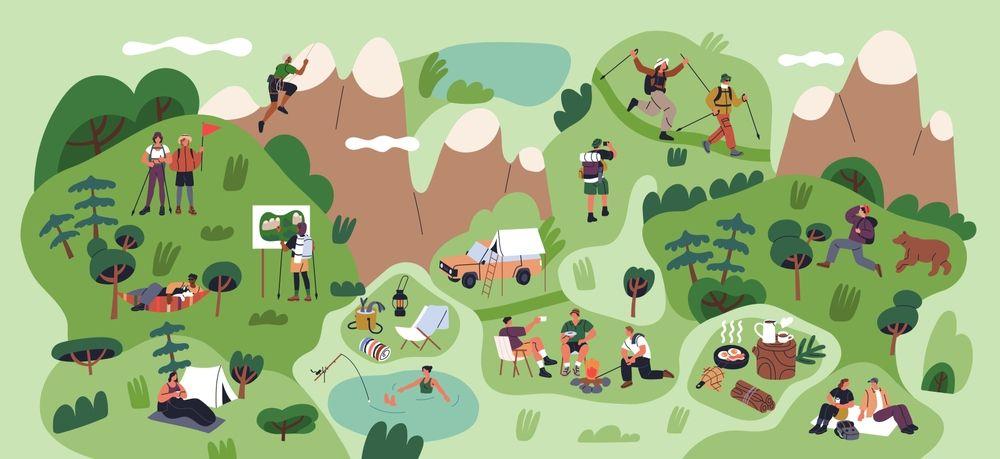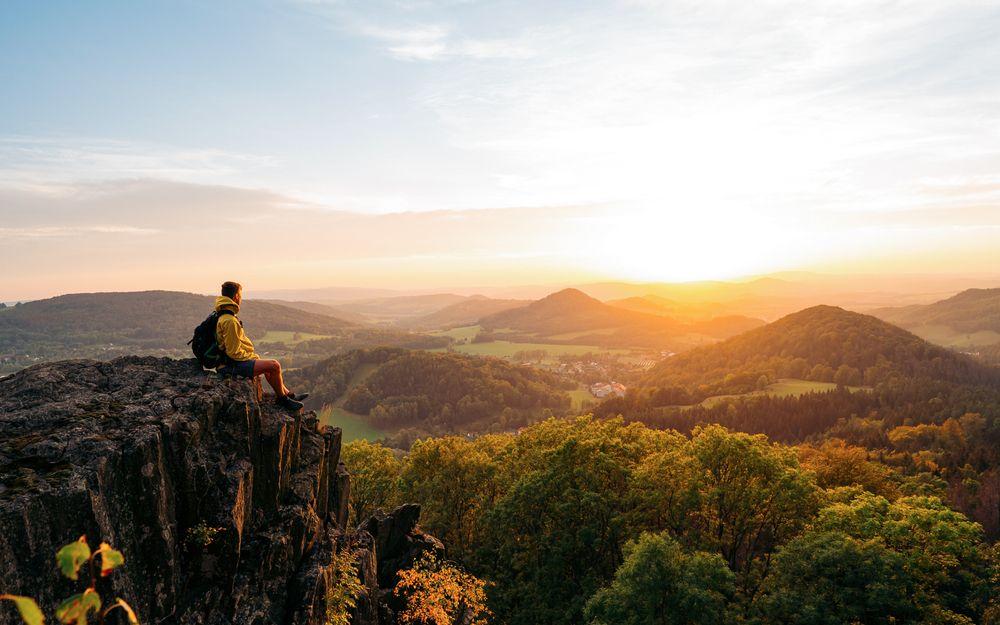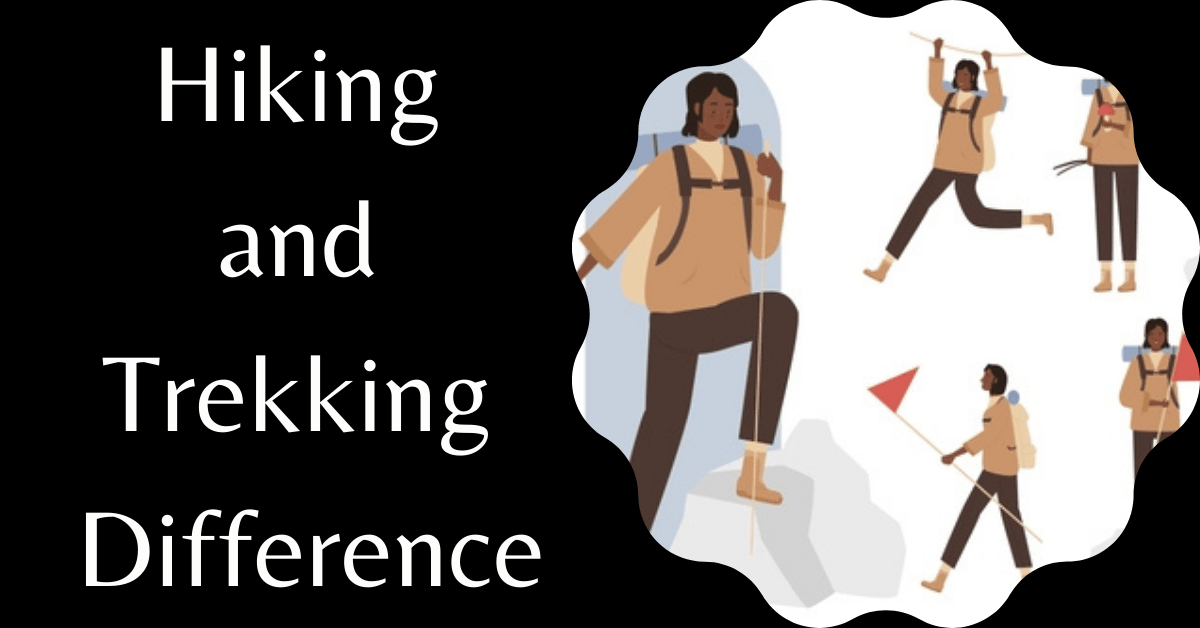In this comprehensive exploration, we delve into the Hiking and Trekking Difference, shedding light on their unique features and the experiences they offer. Hiking and trekking are two popular outdoor activities that often get used interchangeably. However, a closer look reveals distinct characteristics that set them apart.

Hiking and Trekking: Unveiling the Distinctions
Outdoor enthusiasts often find themselves navigating the trails, seeking adventure and communion with nature.
While hiking and trekking share similarities, they represent distinct realms of the outdoor experience.
Why is Lakshadweep Known as a Coral Island?
II. Defining Hiking and Trekking
Hiking

Hiking, often considered a shorter excursion, involves traversing purposefully cleared trails. These trails are designed for hikers, offering a more accessible and leisurely experience[1][2].
Hiking, derived from the word ‘hike,’ is a recreational activity involving walking in natural landscapes. It offers a unique blend of physical exercise and communion with nature.
Hikers explore trails, often in scenic and remote areas, embracing the benefits of fresh air and picturesque surroundings.
This outdoor adventure not only promotes physical well-being but also provides a mental escape from urban life.
Whether a brief day walk or an extended trek, hiking is a versatile activity accessible to individuals of various fitness levels, making it a popular choice for those seeking a holistic and enjoyable way to connect with the outdoors.
Trekking

Trekking is a captivating outdoor activity that goes beyond a simple walk. It involves exploring natural landscapes, often in mountainous regions, with a purpose of experiencing adventure and appreciating scenic beauty.
Unlike a casual stroll, trekking demands endurance and may span multiple days, making it an immersive journey into the heart of nature.
Trekkers navigate diverse terrains, from lush forests to rugged mountain trails, encountering challenges that contribute to both physical fitness and mental rejuvenation.
With a blend of exploration, physical exertion, and the thrill of discovery, trekking offers a unique and enriching way to connect with the great outdoors.
How to Become a Food and Travel Blogger
III. Duration: A Key Distinction

One notable difference lies in the duration of these activities.
Hiking Duration
Hikes are typically shorter, spanning a few hours or a day, providing a fulfilling experience without the need for extended camping[2].
Trekking Duration
Treks, in contrast, are more prolonged, often spanning multiple days. Participants need to camp during the journey, adding an element of endurance and self-sufficiency[4].
IV. Terrain and Difficulty
Hiking Terrain
Hiking trails are usually well-marked and maintained, offering a relatively straightforward path. The terrain is generally less challenging, making it accessible to a broader range of outdoor enthusiasts[1][2].
Trekking Terrain
Trekking often involves navigating through diverse and challenging terrains. Trails may not be well-marked, requiring a higher level of skill and preparedness[4].
V. Gear and Preparation
Hiking Gear
Hikers typically require lighter gear, focusing on comfort and essentials for a day trip. Backpacks are smaller, carrying necessities like water, snacks, and first aid kits[1][2].
Trekking Gear
Trekkers need more comprehensive gear for extended journeys. This includes camping equipment, suitable clothing for varied weather, and provisions for the entire trek[4].
VI. Conclusion- Hiking and Trekking Difference: Embracing Outdoor Adventures

In conclusion, the distinctions between hiking and trekking extend beyond semantics. Whether opting for a day-long hike or a multi-day trek, outdoor enthusiasts find fulfillment in embracing the diverse experiences each activity offers.
VII. Frequently Asked Questions (FAQs)
Q1: Can I use the terms “hiking” and “trekking” interchangeably?
A1: While they share similarities, hiking and trekking represent different experiences. Hiking is often shorter and on well-marked trails, whereas trekking involves more extended journeys in remote areas.
Q2: What gear do I need for hiking vs. trekking?
A2: Hiking requires lighter gear for day trips, focusing on essentials. Trekking demands more comprehensive gear, including camping equipment and provisions for an extended journey.
Q3: Are hiking trails more accessible than trekking trails?
A3: Yes, hiking trails are purposefully cleared and well-marked, making them more accessible to a broader range of outdoor enthusiasts.

1 thought on “Hiking and Trekking Difference”